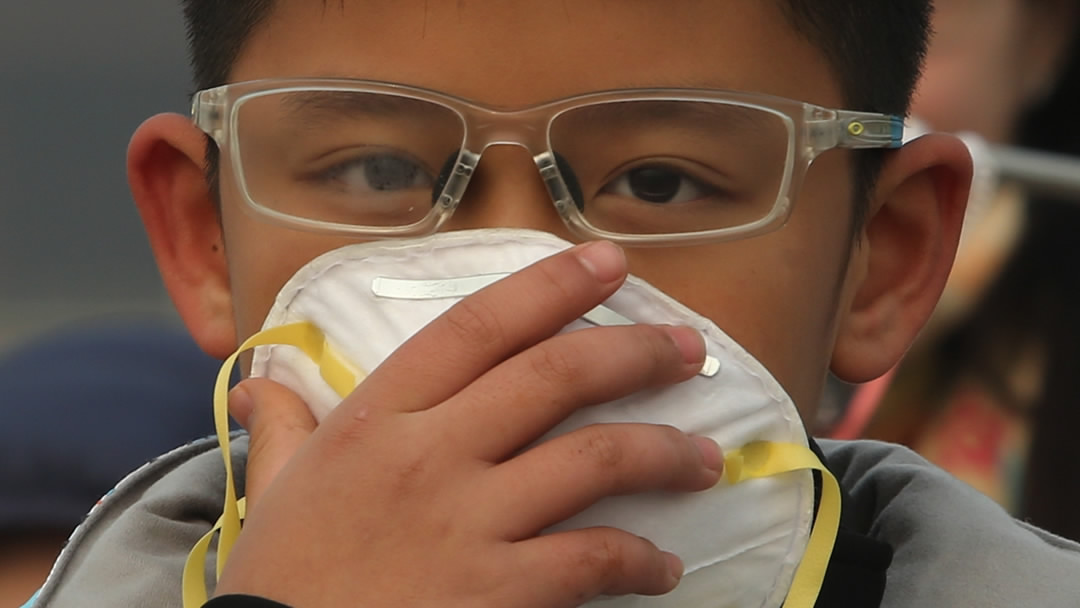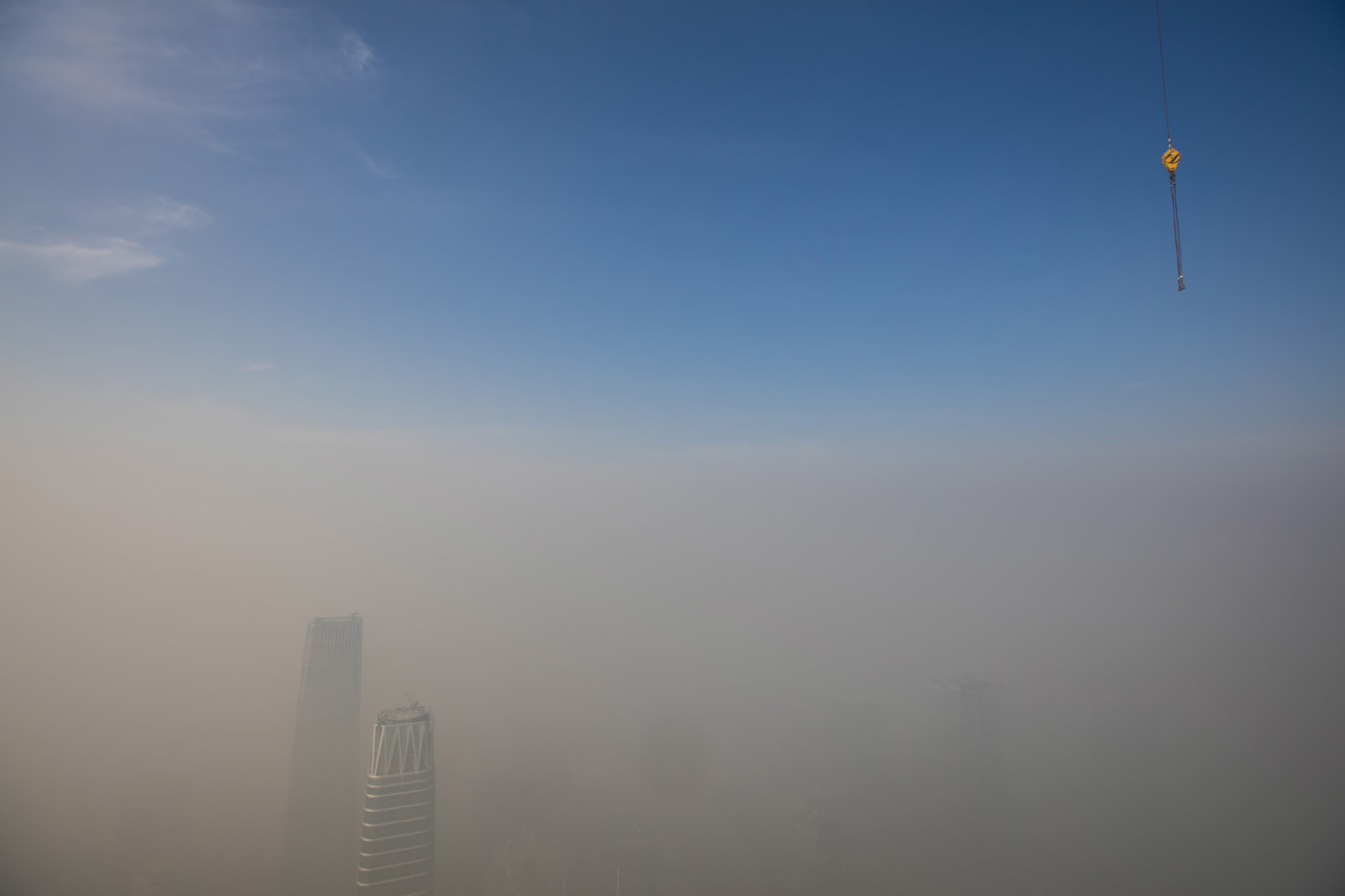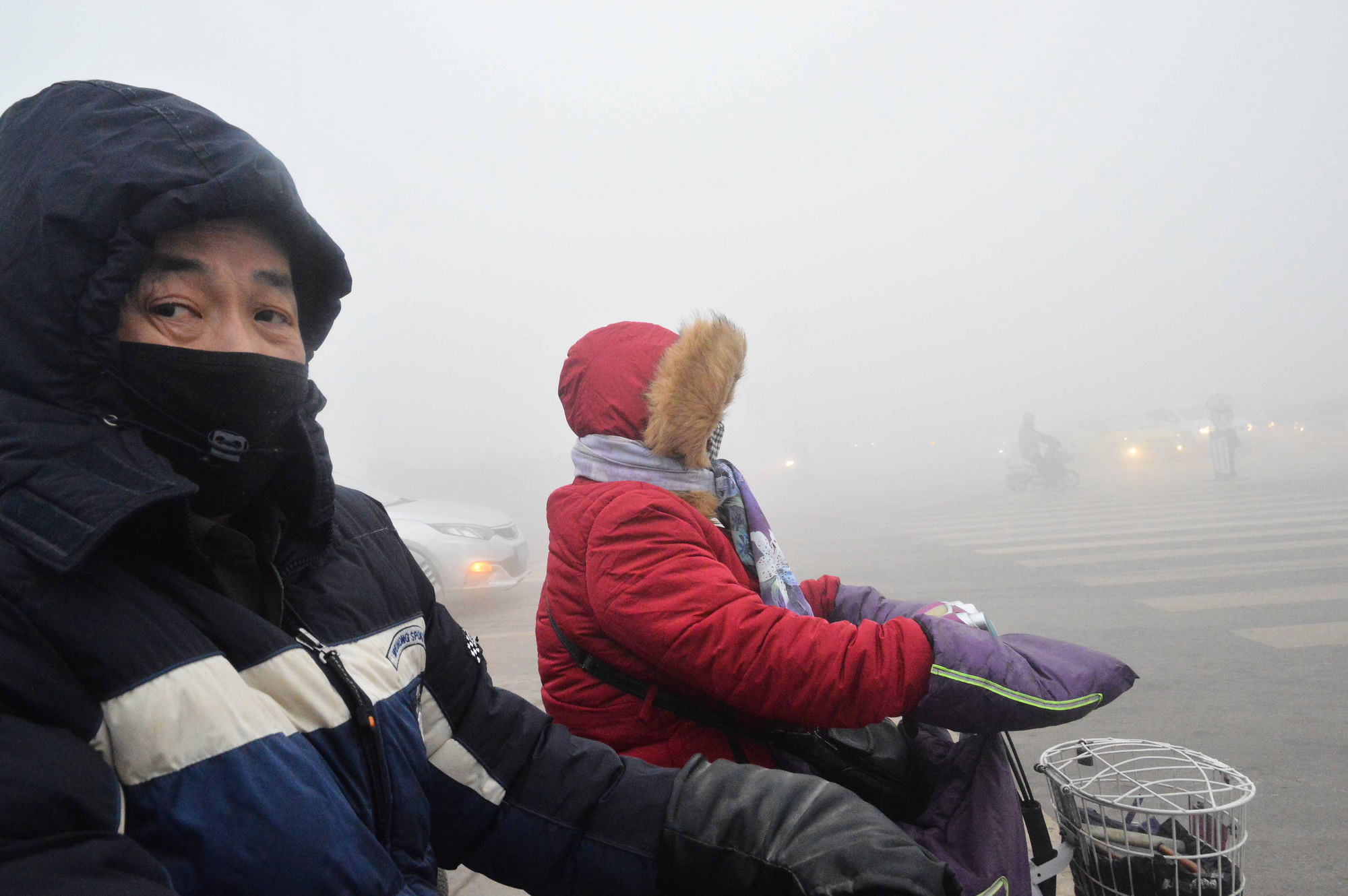
China
18:08, 08-Jan-2017
China vows stricter measures to clear ‘disturbing’ smog
Updated
10:32, 28-Jun-2018

A new year, but no fresher air. China was shrouded in choking smog throughout the first week of 2017. Air quality began to sink as 2016 approached its end, spoiling celebrations in the northern part of the country. And on Sunday, the southern province of Guangdong also surrendered to the pollution.
Alarms are raised ever more regularly by local authorities to warn about the health threat, which consists mainly of PM2.5, a particle which can be breathed in and thus a vehicle for airborne diseases.
People living in the affected areas have been on edge. The unease seems to have reached a new level, with many taking to China’s social networks to question the government’s attempts to tackle the issue.
Sensing the discontent, the central and local governments soon responded by pledging more measures to clean China’s air.
'GRUMPY INTERNET'

Beijing's smog envelops the city's skyscrapers. /CFP Photo
Beijing's smog envelops the city's skyscrapers. /CFP Photo
“The smog is an ‘equalizer’ now,” @Everythinghaschanged commented wryly on WeChat, China’s most popular messaging APP. “The same air is breathed in by both the common and the privileged.”
Chinese social networks have become ever more infused with cynicism, panic and discontent expressed by people whose lives are frequently disrupted by the recurring air pollution.
Panic has led to rumors and speculation. Stories from unknown or suspicious sources have also been widely shared on the social networks by people who are desperate to get to the bottom of where exactly the smog has come from and how to combat the unhealthy air.
One article that stirred the public online but was later rebutted by experts claimed that “imported petroleum tar” was to blame for contaminating the air.
The cynicism and complaints soon developed into criticism of government efforts to deal with the problem, especially as the heavy smog lingered.
In Beijing, a city which is rarely spared any smog attack, parents raced to sign an online petition demanding schools and kindergartens be equipped with air purifiers.
Some parents have taken their own smog detectors to schools in order to prove their cases.
'PEOPLE’S CALL IS HEARD'

People go to work in the morning smog in Weifang of Shandong Province. /CFP Photo
People go to work in the morning smog in Weifang of Shandong Province. /CFP Photo
Beijing’s education authority responded to the complaints of parents on Friday in a statement posted on its official account on Weibo. The post revealed that the government had already put aside funds for schools and kindergartens to set up air purifying devices.
“People’s call is heard,” one parent commented on WeChat after the news was revealed.
On Saturday, Cai Qi, Beijing’s acting mayor, also publicly addressed local residents’ concerns over air quality.
Cai, who took office last October, said he feels “deeply disturbed” that the smog has been inconveniencing people.
“I sympathize with people who are venting online about the smoggy weather,” he added. He promised 10 measures to tackle the issue, including strict control of the potential polluters.
Senior central government officials have also spoken out about the thorny issue.
People in the affected areas are discontent because they don’t sense any improvement in winter, Chen Jining, the minister for environment protection, said in a press conference on Saturday night, vowing that the department will “reinforce” the existing measures to control air pollution.
Reducing air pollution cannot be done overnight, Chen added.
But many netizens continue to doubt the teeth of the ministry's polices and fear that a desire for economic growth will prevent local governments from shutting down polluting factories.
“The lack of communication from government with the public about the pollution is the major cause for people’s panic,” an editorial published on Weibo by China Central Television's Mandarin news channel argued.
“The victory of this battle against air pollution is conditional on the government being more transparent.”

SITEMAP
Copyright © 2018 CGTN. Beijing ICP prepared NO.16065310-3
Copyright © 2018 CGTN. Beijing ICP prepared NO.16065310-3